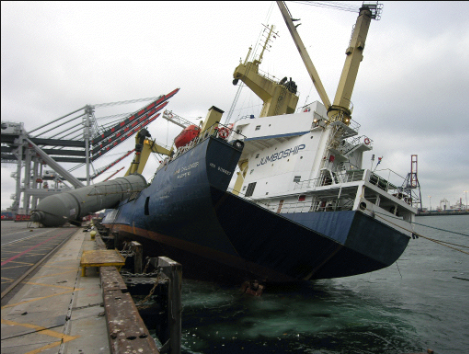
A total of 21 vessels were lost at sea in 2018, according to the International Union of Marine Insurance (IUMI).
The number, which is on the back of a general downward trend witnessed since 2010, represents a 20-year low.
Serious casualties — excluding total losses — have stabilized over the past three years but are still higher, on average, than in 2014. There is likely to be a spike in Q1 2019 when numbers have been finalized. 900 incidents were recorded in 2018 representing 1.6 percent of the global fleet.
The data was highlighted as part of a review of the current state of the hull, cargo and offshore energy insurance markets at the union’s Spring Conference in Hamburg this month.
IUMI said that despite major losses remaining stable, the continued erosion of the global premium base meant that attritional losses are becoming much more significant. The increased risk of large, more complex and costly claims has the potential to impact all marine underwriting sectors in 2019, it was added.
“We are pleased to see a stabilization in total losses and serious casualties and this is a clear indication of an enhanced safety culture, improved vessel design and more effective regulation across the industry,” Rama Chandran, Chairman of IUMI’s Ocean Hull Committee, commented.
“Statistics show total losses of younger tonnage (under 15 years) are dramatically lower in 2014-2018 than in 2009-2013. Underwriters welcome the industry’s overall improvement in safety but also recognize that increasing size, scale and complexity of new tonnage is affecting the current risk profile.”
“We are also likely to see increased machinery claims resulting from the 2020 sulphur limit,” Chandran said.
IUMI further added that container trade was expected to grow by 4.8 percent in 2019 against a fleet growth of just 2.6 percent which indicates a modest recovery in rates. However, factors such as a downturn in the economy, increased tariffs and rising fuel costs have the potential to put the brakes on any future upturn.
On the back of a slowdown in global economic growth, the WTO is expecting growth in global trade to scale back to 3.7 percent this year (from 3.9 percent in 2018). As a result, the outlook for shipping is mixed.
“Global cargo marine insurance has been unprofitable for a number of years – historically it was one of the most profitable lines of marine insurance.
“Whilst there are regional variations, on a global basis, premiums are not technically adequate to cover losses and expenses. This is major concern,” IUMI’s Cargo Committee Chairman,” Sean Dalton, said.